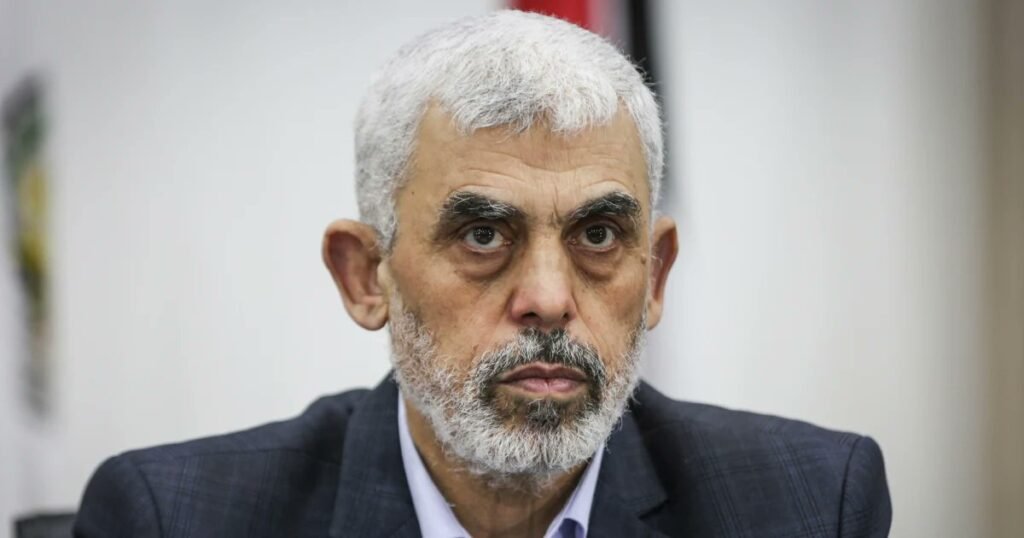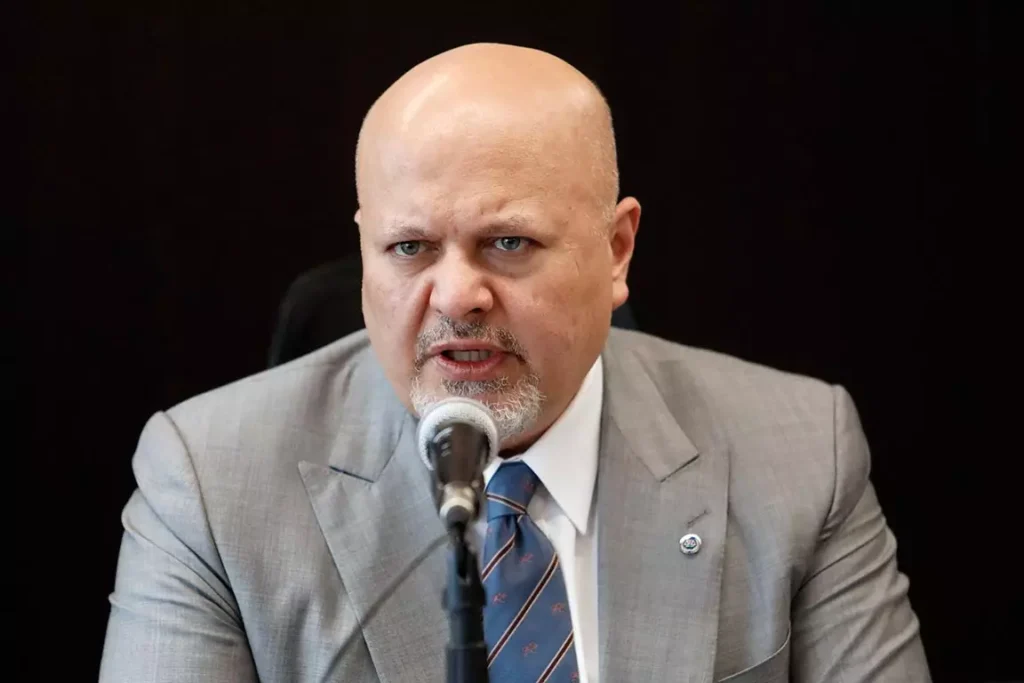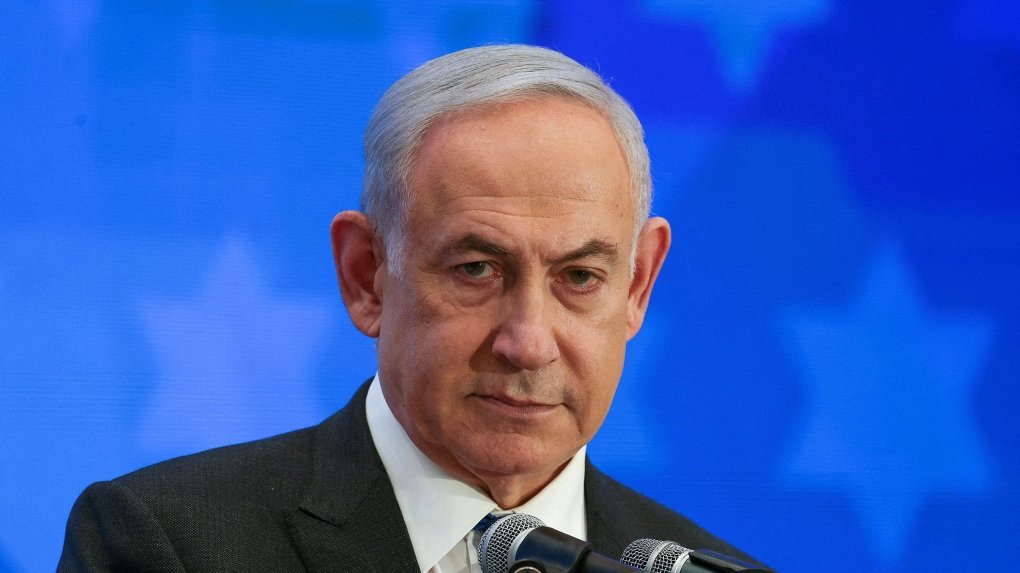Israeli Prime Minister Benjamin Netanyahu risks being arrested if the International Criminal Court (ICC) accepts an application that Mr Karim Khan, its prosecutor, has filed.
“On the basis of evidence collected and examined by my Office, I have reasonable grounds to believe that Benjamin Netanyahu, the Prime Minister of Israel, and Yoav Gallant, the Minister of Defence of Israel, bear criminal responsibility for the following war crimes and crimes against humanity committed on the territory of the State of Palestine (in the Gaza strip) from at least 8 October 2023,” Mr Khan said on Monday, May 20, in an application before the Pre-Trial Chamber I of the ICC.
-
Sale!
Download Nairobi Law Monthly Magazine July 2024 Edition
Downloads Original price was: KShs200.00.KShs100.00Current price is: KShs100.00.
Should the court grant his prayers, three Palestinian leaders will also have warrants of arrest against them.
These are Mr Yahya Sinwar, who is the head of the Islamic Resistance Movement popularly known as Hamas, Mr Mohammed Diab Ibrahim Al-Masri, more commonly known as DEIF, and who is the Commander-in-Chief of the military wing of Hamas, known as the Al-Qassam Brigades, and Mr Ismail Haniyeh, the head of Hamas Political Bureau.
The three are facing at least eight charges jointly.
The prosecutor has also accused Mr Netanyahu and Mr Gallant of among other crimes, using starvation of civilians as a method of warfare, which, according to the prosecutor, is a war crime contrary to article 8(2)(b)(xxv) of the Statute.
Mr Khan also says that the two should face charges for among others
- Wilfully causing great suffering, or serious injury to body or health contrary to article 8(2)(a)(iii), or cruel treatment as a war crime contrary to article 8(2)(c)(i);
- Wilful killing contrary to article 8(2)(a)(i), or murder as a war crime contrary to article 8(2)(c)(i);
- Intentionally directing attacks against a civilian population as a war crime contrary to articles 8(2)(b)(i), or 8(2)(e)(i);
- Extermination and/or murder contrary to articles 7(1)(b) and 7(1)(a), including in the context of deaths caused by starvation, as a crime against humanity;
- Persecution as a crime against humanity contrary to article 7(1)(h);
- Other inhumane acts as crimes against humanity contrary to article 7(1)(k).
According to him, the three Hama leaders are accused of
- Extermination as a crime against humanity, contrary to article 7(1)(b) of the Rome Statute;
- Murder as a crime against humanity, contrary to article 7(1)(a), and as a war crime, contrary to article 8(2)(c)(i);
- Taking hostages as a war crime, contrary to article 8(2)(c)(iii);
- Rape and other acts of sexual violence as crimes against humanity, contrary to article 7(1)(g), and also as war crimes pursuant to article 8(2)(e)(vi) in the context of captivity;
- Torture as a crime against humanity, contrary to article 7(1)(f), and also as a war crime, contrary to article 8(2)(c)(i), in the context of captivity;
- Other inhumane acts as a crime against humanity, contrary to article 7(l)(k), in the context of captivity;
- Cruel treatment as a war crime contrary to article 8(2)(c)(i), in the context of captivity; and
- Outrages upon personal dignity as a war crime, contrary to article 8(2)(c)(ii), in the context of captivity.
“My Office submits that the war crimes alleged in these applications were committed in the context of an international armed conflict between Israel and Palestine,” Mr Khan, who was involved in Kenya’s post-election trials in 2010. At the time, he was a defence lawyer but has since become prosecutor.
In April, US senators warned that they would take measures against Mr Khan, his family and associates and the ICC should he prefer charges against the Israeli PM.
Since the violence in Gaza started in October 2023, more than 35,000 people have been killed.
“My Office submits there are reasonable grounds to believe that Sinwar, Deif and Haniyeh are criminally responsible for the killing of hundreds of Israeli civilians in attacks perpetrated by Hamas (in particular its military wing, al-Qassam Brigades) and other armed groups on 7 October 2023 and the taking of at least 245 hostages,” the prosecutor says in the documents he has filed before the ICC judges.

And in his case against the two Israeli leaders, he said: “My Office submits that the evidence we have collected, including interviews with survivors and eyewitnesses, authenticated video, photo and audio material, satellite imagery and statements from the alleged perpetrator group, shows that Israel has intentionally and systematically deprived the civilian population in all parts of Gaza of objects indispensable to human survival.”
- US senators threaten ICC over Netanyahu’s potential arrest
- How the ‘laws of war’ apply to the conflict between Israel and Hamas
- 35 killed, scores injured in Israeli strike on Rafah
He told the judges that he had arrived at the far-reaching decision after conducting independent investigations and severally warning those involved in the conflict to obey the law or face its consequences.
“As I also repeatedly underlined in my public statements, those who do not comply with the law should not complain later when my office takes action. That day has come,” he said in a video press statement published on the ICC website.
Israel is not a member of the Rome Convention, the law that set up the International Criminal Court, presenting a hurdle about how an arrest warrant against its government leaders would be executed. Its ally, the US, which is also not a party to the Rome Convention, has already warned the prosecutor and ICC, that it would target them individually and severally.

An arrest warrant that the ICC issued against Russian leader Vladimir Putin presented a diplomatic hurdle that prompted him to postpone a planned visit to South Africa after various European countries piled pressure on President Cyril Ramaphosa to facilitate President Putin’s arrest. President Putin is currently in China for an official visit.
President Ramaphosa was among the African leaders who pushed the ICC to open investigations into the Gaza violence and charge Israel leaders with crimes against humanity. Three of the five the judges who heard the case sided with South Africa, with the exception of Ugandan judge Julia Sebutinde, who dissented while another judge, Aharon Barak, gave a separate opinion.
At the time, Judge Sebutinde argued that “South Africa has not demonstrated, even on a prima facie basis, that the acts allegedly committed by Israel and of which the applicant complains, were committed with the necessary genocidal intent, and that as a result, they are capable of falling within the scope of the Genocide Convention.”
The three judges who upheld the South Africa case were Xue Hanqin, Dalveer Bhandari and Georg Nolte.


